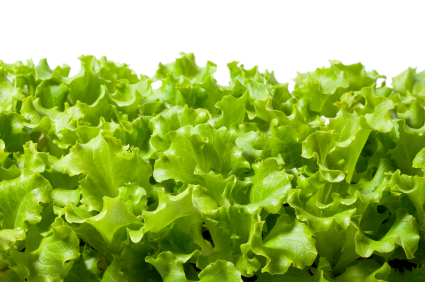Nutrition
Babies and Children
Learn about specific nutrition and exercise by age and stage for babies, toddlers, preschoolers, kids, and teenagers recommended by the American Academy of Pediatrics. Encouraging good eating and exercise habits with kids sets patterns they’re likely to stick to their entire lives
Adults
Foods rich in vitamins C and E, zinc, lutein, zeaxanthin,  and omega-3 fatty acids DHA and EPA are good for eye health as well as general health, according to the Age-Related Eye Diseases Study (AREDS-2), funded by the National Eye Institute, and other research. These nutrients are linked to lower risk for age-related macular degeneration (AMD), cataract and dry eye later in life. Choosing healthier foods is a good thing no matter how early or late in life we begin.
and omega-3 fatty acids DHA and EPA are good for eye health as well as general health, according to the Age-Related Eye Diseases Study (AREDS-2), funded by the National Eye Institute, and other research. These nutrients are linked to lower risk for age-related macular degeneration (AMD), cataract and dry eye later in life. Choosing healthier foods is a good thing no matter how early or late in life we begin.
Eye-healthy food choices include citrus fruits, vegetable oils, nuts, whole grains, dark green leafy vegetables and cold water fish.
People who have diabetes or AMD or are at risk for these diseases can also benefit by following a low-glycemic (low-GI) index diet. Most people with diabetes, and others who have used a low-GI diet to lose weight, are familiar with glycemic index charts. The GI value is based on how fast a food’s carbohydrates raise the body’s blood sugar levels; low GI foods have less impact on blood sugar fluctuations.
People with AMD may be able to slow the progression of the disease by taking a special nutrient supplement called the AREDS-2 formula, developed as a result of the AREDS research (described above). The formula includes:
- Vitamin C (500 mg);
- Vitamin E (400 IU);
- Lutein (10 mg);
- Zeaxanthin (2 mg);
- Zinc oxide (80 mg); and
- Copper oxide (2 mg).
This is promising news for people who are at risk for or already have AMD. But before stocking up on these supplements, be sure to talk with your Medicus Eye Group physician to learn if they are recommended for you. Some people should not take large doses of antioxidants or zinc for medical reasons. There are many commercially available formulations that follow the AREDS-2 guidelines. Ocuvite, Preservision, and I-Caps are but a few of the many available. A less expensive alternative is Focus MaculaPro that is available through our office. The savings is quite substantial, and refills can be mailed to patients as needed. While Focus MaculaPro is available online, it is usually cheaper to get it from the office.
Omega-3 benefits
Much research up to now has focused on omega-3 versus omega-6 fatty acids and how they are linked to the incidence of dry eye. Omega-3 acids are found in walnuts and oily, cold, dark fish such as tuna and salmon. Omega-6 acids are found in meat, canola and corn oil, and margarine. Although both kinds of fats are needed to function, omega-3 acids are healthier than the omega-6 acids, said James McCulley, M.D., professor and chair of ophthalmology, University of Texas Southwestern Medical Center, Dallas. Although humans evolved on a diet with approximately equal amounts of omega-6 and omega-3 acids, omega-6 consumption in the typical Western diet can outweigh omega-3 acids by 16 times, according to a study from the October 2002 issue of Biomedicine and Pharmacotherapy.
“We know our diet is relatively deficient in omega-3 fatty acids. It’s analogous to good and bad cholesterol, where the omega 6 is the bad cholesterol and the omega-3 is the good cholesterol. We need both, but we need the ratio to be appropriate,” Dr. McCulley said. Omega-3 acids may benefit dry eye by reducing inflammatory activity in the body and by possibly altering the chemical profiles of the oil glands in the eyelids. Some components of the omega-3 acids are thought to stimulate aqueous tear secretion.
“Scientific research over the past decade has shown that specifically targeted nutritional supplements can restore function to the glands that provide lubrication to the eye. This includes both omega GLA as well as omega 3 EPA,” said Spencer P. Thornton, M.D., president of South Carolina-based Biosyntrx, which makes the dry-eye nutritional capsule BioTears.
As you think about ways to improve your eye health, remember: vitamins and nutritional supplements are not a cure for eye disease, nor will they give you back vision that you may have already lost. But good nutrition at all ages is vital for your entire body, and plays an important role in maintaining healthy eyes. Talk with one of our doctors about any concerns you have about your eye health.

